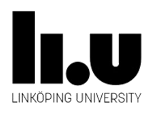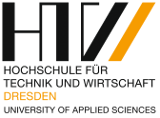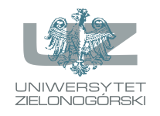






ICTM 2021
8th International Conference on ICT Management for Global Competitiveness and Economic Growth in Emerging Economies ICTM 2021
Wroclaw, Poland, October 26-28, 2021
Online Conference
Conference Theme: The digital innovation in information systems, virtual management and their impact on sustainable development in crisis conditions
Organizers: University of Wrocław, Poland; Polish Chapter of Association for Information Systems (PLAIS); Hochschule Emden/Leer, Germany; The College of Management "Edukacja", Poland; The Cracow University of Economics, Poland; Polish Association of Analytical Psychology (PTPA), Poland; and Hochschule für Technik und Wirtschaft Dresden, Germany
ictm.wroclaw@gmail.com
Invitation for the International Conference ICTM 2021
Submission website:
https://easychair.org/conferences/?conf=ictm20210
or email:
ictm.wroclaw@gmail.com
CFP - updated
https://docs.google.com/document/d/19FDjba3sM9xgeWR31zNzdgW9kdrV73ee/edit?usp=sharing&ouid=111077442654891082326&rtpof=true&sd=true
Website under construction...
|
This conference aims to broaden our understanding of various aspects of information and communication technologies (ICT) and information systems (IS) in the context of innovations in sustainable development. The primary focus is on emerging age-based digital divides that are also detectable in the labor market, violated – due to broad technology deployment – citizenship empowerment and inclusion, state policies, and action is undertaken to ensure senior citizens support through ICT-based networks. We put much emphasis on systems, models, and methods fostering ICT innovations. The topics of the conference are described below. The digital innovation in information systems, virtual management and their impact on sustainable development in crisis conditions The conference will focus on the ICT and IS development, virtual management, and their impact on different aspects of sustainable development, possible in crisis circumstances. We understand that sustainable development is a positive socio-economic change that does not undermine ecological and social systems (Rees, 2989, FAO, 2021). Recent, challenging experiences of people related to the pandemic and lockdown have indicated the need to use and develop information and communication technologies (ICT) and information systems (IS) both in everyday life and in companies (Roztocki, Strzelczyk, and Weistroffer, 2020). There was a need for socio-economic activity in virtual conditions. The pandemic and lockdown hampered socio-economic development (Tisdell, 2020). Hence, how to maintain human development, and maybe accelerate it, considering social and pro-ecological conditions? Can IS be used for sustainable development in crisis conditions? Which digital innovations are needed to maintain human development in such circumstances? Moreover, if so, how to effectively manage a company in crisis conditions, when sometimes the only possibility is its virtual operation? The analysis of the development of various types of economies, such as developed, transforming, or emerging, shows that the information and communication technologies (ICT) and information systems (IS) play an extraordinary role in the development of humanity (Kowal and Roztocki, 2013). We mean information and communication technologies, including the Internet, wireless networks, computers, software, social networks, middleware, videoconferencing, social networks, mobile phones, and other media applications and services. They allow users to access, download, process, upload, store and transmit information digitally (Madlela, 2015, FAO, 2021). In turn, an information system (IS) is a formal and social engineering organizational system whose purposes are collecting, processing, storing, and distributing information (Piccoli, & Pigni, 2019). The socio-technical approach to information systems comprises four components: tasks, people, structure (or roles), and technology (O'Hara, Watson, & Kavan, 1999). IS can be understood as the integration of data collection, storage and processing components whose data is used to provide information, gathering and knowledge development, and digital products facilitating decision making (Zwass, 1992). Which digital innovations are needed to support sustainable development in a crisis situations? "Sustainable" describes any activity that can be carried out indefinitely, while "development" can refer to a single activity or a general pattern of socio-economic activity. The most crucial aspect is the development and meeting the needs of society as a whole. The assumption of this concept is also that individual economic activities are organized on the most balanced basis possible First, the concept of development includes economic activity itself, but also the process responsible for implementing and regulating it (Rees, 1989). Its effective implementation is integrated policy, planning, and the accurate functioning of social learning processes. Its viability depends on the full support of the people it affects through its governments, social institutions, and private activities. Management is a set of activities (planning, organizing, motivating, controlling) aimed at the organization's resources (human, financial, material, information) used to achieve the organization's goals. (Griffin, 2021). Virtual management requires knowledge of socio-economic issues, primarily organizational, but also IT. Therefore, we are particularly interested in what unique soft and hard competencies an effective manager should have. We are especially interested in finding answers to the following questions concerning sustainable development: 1. How can digital innovations in ICT/ IS be oriented towards achieving clear ecological, social, and economic goals in crises? 2. Can the sustainable development policy impose ecological restrictions through the digital innovations in IS on the consumption of materials, promoting quality development at the collective and individual levels in crisis conditions, such as lockdown and pandemics? 3. What kind of virtual government intervention, virtual leadership, and virtual cooperation from the private sector support sustainable development in crisis conditions? 4. Is it possible to integrate and coordinate policies on all spatial scales and between the relevant political jurisdictions under crisis conditions virtually by IS? 5. If and how sustainable development depends on virtual informed, open, and equitable educational, planning, and political processes by digital innovations IS? 6. What methods and techniques of social influence can be applied ethically through ICT or IS to support the pro-ecological activity of different communities? 7. How to measure the virtual digital communications among industrial enterprises in crisis circumstances for sustainable development? 8. What are the virtual aspects of industrial branding using IS for sustainable development? 9. How can we use social media in virtual marketing for sustainable development ethically? 10. What is the impact of social networks and social media on marketing for sustainable development, especially in crisis circumstances? 11. What is the use of mobile media for sustainable development, especially in crises? 12. How can both firm-client relationships and managing the sales force be virtually formed for sustainable development? 13. How to effectively implement management in a virtual company for sustainable development at the level of individual units and globally? 14. What are the barriers to and enablers of virtual management in industrial enterprises? 15. What are the critical competencies required to manage new virtual marketing communications in an industrial setting? 16. What is the psychological impact of a pandemic on society? 17. Can psychological support and online therapy be effective? We are interested in theoretical and empirical, quantitative and qualitative research, including single and multiple case studies. Note Proceedings of the ICTM are indexed in Web of Science (Thomson Reuters/Clarivate) since 2012. Contributions to any of the topics within the spectrum of the ICTM2021 paradigm are welcome. The four categories for proposals are (1) abstracts, (2) individual papers, (3) posters and (4) e-posters. Two kinds of publications are planned: (1) a monograph, in which the papers with up to 20000 characters in English will be included,(2) a monograph, in which the articles in a smaller volume will be published. The monographs will be submitted for inclusion in the Citation Index by Thomson Reuters/Clarivate. Those papers which are top-rated by reviewers when submitted to the ICTM 2021 conference will be published in special sections in several journals, among others in ICT Management for Global Competitiveness and Economic Growth in Emerging Economies (ICTM). |
Conference Co-Chairs |
||||||||||||
|
|
|
||||||||||||
|
|
|
||||||||||||
|
|||||||||||||
Conference Secretaries |
|||||||||||||
|
|
|
||||||||||||
Karolina Dreszer University of Wrocław, Institute of Psychology, Poland |
|||||||||||||








